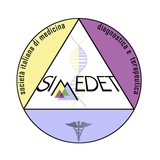Nonnutritive #sweeteners and cardiometabolic #health: a systematic review and meta-analysis of randomized controlled trials and prospective cohort studies
http://m.cmaj.ca/content/189/28/E929
Nonnutritive sweeteners, such as aspartame, sucralose and stevioside, are widely consumed, yet their long-term health impact is uncertain. We synthesized evidence from prospective studies to determine whether routine consumption of non-nutritive sweeteners was associated with long-term adverse cardiometabolic effects. In the cohort studies, consumption of nonnutritive sweeteners was associated with increases in weight and waist circumference, and higher incidence of obesity, hypertension, metabolic syndrome, type 2 diabetes and cardiovascular events. Publication bias was indicated for studies with diabetes as an outcome.
INTERPRETATION Evidence from RCTs does not clearly support the intended benefits of nonnutritive sweeteners for weight management, and observational data suggest that routine intake of nonnutritive sweeteners may be associated with increased BMI and cardiometabolic risk. Further research is needed to fully characterize the long-term risks and benefits of nonnutritive sweeteners.
http://m.cmaj.ca/content/189/28/E929
Nonnutritive sweeteners, such as aspartame, sucralose and stevioside, are widely consumed, yet their long-term health impact is uncertain. We synthesized evidence from prospective studies to determine whether routine consumption of non-nutritive sweeteners was associated with long-term adverse cardiometabolic effects. In the cohort studies, consumption of nonnutritive sweeteners was associated with increases in weight and waist circumference, and higher incidence of obesity, hypertension, metabolic syndrome, type 2 diabetes and cardiovascular events. Publication bias was indicated for studies with diabetes as an outcome.
INTERPRETATION Evidence from RCTs does not clearly support the intended benefits of nonnutritive sweeteners for weight management, and observational data suggest that routine intake of nonnutritive sweeteners may be associated with increased BMI and cardiometabolic risk. Further research is needed to fully characterize the long-term risks and benefits of nonnutritive sweeteners.
!!
Association between intake of non-sugar #sweeteners and #health outcomes: systematic review and meta-analyses of randomised and non-randomised controlle
https://www.bmj.com/content/364/bmj.k4718
To assess the association between intake of non-sugar sweeteners (NSS) and important health outcomes in generally healthy or overweight/obese adults and children.
..For all other outcomes, no differences were detected between the use and non-use of NSSs, or between different doses of NSSs. No evidence of any effect of NSSs was seen on overweight or obese adults or children actively trying to lose weight (very low to moderate certainty). In children, a smaller increase in body mass index z score was observed with NSS intake compared with sugar intake (−0.15, −0.17 to −0.12; two, n=528, moderate certainty of evidence), but no significant differences were observed in body weight (−0.60 kg, −1.33 to 0.14; two, n=467, low certainty of evidence), or between different doses of NSSs (very low to moderate certainty).
Conclusions Most health outcomes did not seem to have differences between the NSS exposed and unexposed groups. Of the few studies identified for each outcome, most had few participants, were of short duration, and their methodological and reporting quality was limited; therefore, confidence in the reported results is limited. Future studies should assess the effects of NSSs with an appropriate intervention duration. Detailed descriptions of interventions, comparators, and outcomes should be included in all reports.
Association between intake of non-sugar #sweeteners and #health outcomes: systematic review and meta-analyses of randomised and non-randomised controlle
https://www.bmj.com/content/364/bmj.k4718
To assess the association between intake of non-sugar sweeteners (NSS) and important health outcomes in generally healthy or overweight/obese adults and children.
..For all other outcomes, no differences were detected between the use and non-use of NSSs, or between different doses of NSSs. No evidence of any effect of NSSs was seen on overweight or obese adults or children actively trying to lose weight (very low to moderate certainty). In children, a smaller increase in body mass index z score was observed with NSS intake compared with sugar intake (−0.15, −0.17 to −0.12; two, n=528, moderate certainty of evidence), but no significant differences were observed in body weight (−0.60 kg, −1.33 to 0.14; two, n=467, low certainty of evidence), or between different doses of NSSs (very low to moderate certainty).
Conclusions Most health outcomes did not seem to have differences between the NSS exposed and unexposed groups. Of the few studies identified for each outcome, most had few participants, were of short duration, and their methodological and reporting quality was limited; therefore, confidence in the reported results is limited. Future studies should assess the effects of NSSs with an appropriate intervention duration. Detailed descriptions of interventions, comparators, and outcomes should be included in all reports.
The BMJ
Association between intake of non-sugar sweeteners and health outcomes: systematic review and meta-analyses of randomised and non…
Objective To assess the association between intake of non-sugar sweeteners (NSS) and important health outcomes in generally healthy or overweight/obese adults and children.
Design Systematic review following standard Cochrane review methodology.
Data sources…
Design Systematic review following standard Cochrane review methodology.
Data sources…
Artificial #Sweeteners Negatively Regulate Pathogenic Characteristics of Two Model #Gut Bacteria, E. coli and E. faecalis
https://2medical.news/2021/06/25/artificial-sweeteners-negatively-regulate-pathogenic-characteristics-of-two-model-gut-bacteria-e-coli-and-e-faecalis/
https://2medical.news/2021/06/25/artificial-sweeteners-negatively-regulate-pathogenic-characteristics-of-two-model-gut-bacteria-e-coli-and-e-faecalis/
2Medical.News
Artificial #Sweeteners Negatively Regulate Pathogenic Characteristics of Two Model #Gut Bacteria, E. coli and E. faecalis
Artificial sweeteners (AS) are synthetic sugar substitutes that are commonly consumed in the diet. Recent studies have indicated considerable health risks which links the consumption of AS with met…
